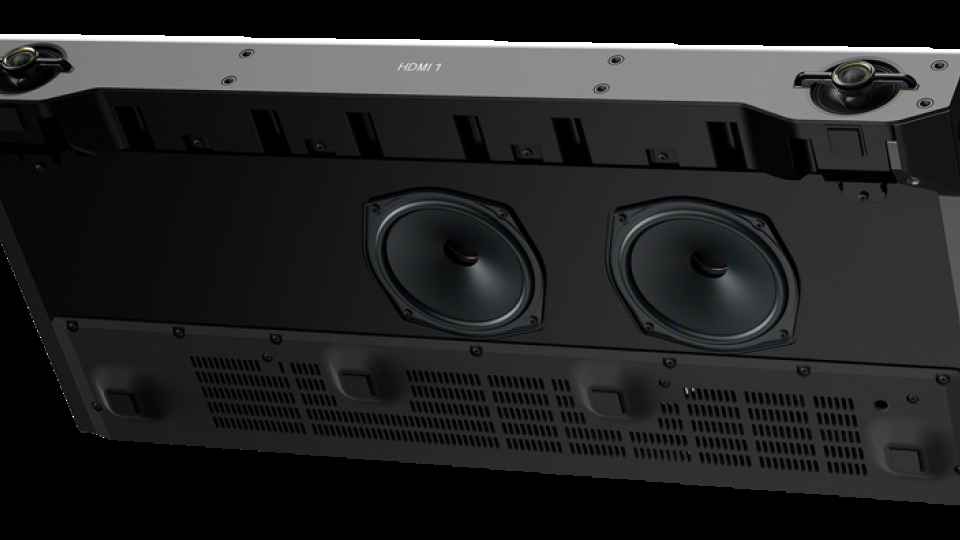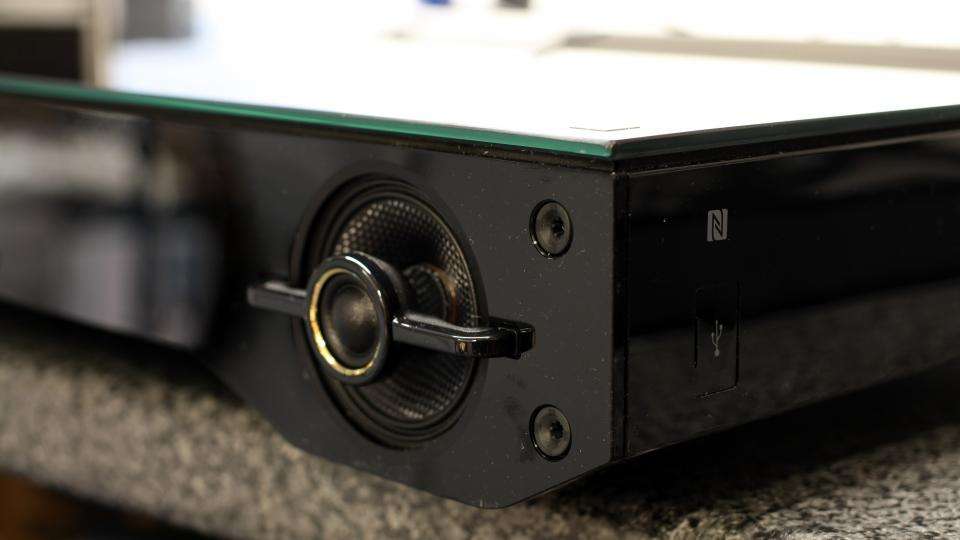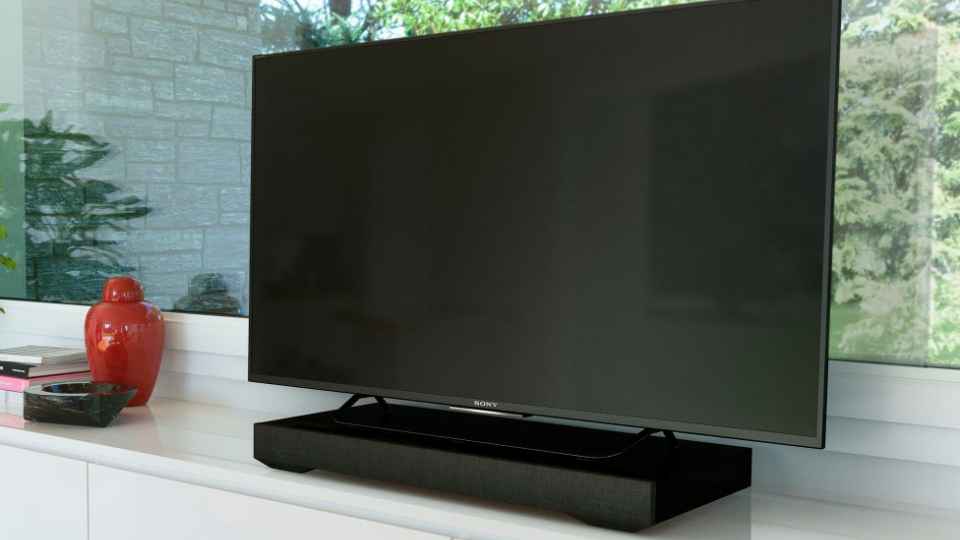You could be forgiven for thinking the HT-XT3 is a slightly chunky-looking soundbase. Next to a Philips Fidelio XS1 SoundStage , it's about twice as tall. However, when you realise that Sony has packed a pair of downward-firing subwoofers into the base, as well as a multitude of connection methods, you can begin to excuse the added heft.
In order to give the downward-firing subwoofers some clearance, the HT-XT3 sit on protruding feet, which add to the overall height. With a television sat on top, it's not exactly the most elegant setup. The HT-XT3 is able to support up to 50kg or 65in TVs, but due to the height, you're not going to be able to use it with larger televisions, which typically have two separate feet at either end for support rather than a central pedestal.
This is worth bearing in mind, as the thinner Philips Fidelio XS1 is able to fit between the feet of many larger televisions, while the HT-XT3 is simply too tall. Where the HT-XT3 is more of an all-in-one option for those who don't want to have to worry about the placement of a separate subwoofer, the Fidelio XS1 has a separate wireless subwoofer to consider which has helped reduce its height.

Aside from its height, the HT-XT3 is a good-looking soundbase. There's a glossy piano black finish across its top, which is a bit of a dust and fingerprint magnet, and the front is dominated by a seamless speaker grille. The grille is detachable if you want to show off the pair of tweeters, but the exposed holes the grille clips into aren't particularly attractive. Weighing a reassuring 10.5kg, it doesn't suffer from any discernible rattle, even with the subwoofer turned all the way up.
The LCD display behind the speaker grille has several brightness levels, or it can automatically turn off after a few seconds so it doesn't prove distracting when watching television at night. The touch-sensitive controls along the top match those used across many of Sony's more recent speakers, including its multiroom models.
You have the choice of either HDMI ARC or an optical cable when hooking up the soundbase to your TV. HDMI ARC will be preferable if you have it available, as the HT-XT3 can then essentially replace your television's built-in speakers, including being able to adjust the volume and power on and off using one remote control. You'll still need the HT-XT3 remote for changing inputs and other settings, but HDMI ARC will make the most basic activity of watching television with sound far simpler. Usefully, the HT-XT3 has three HDMI inputs for adding a set-top box or games console, and even has HDCP 2.2 for 4K pass-through if you have an Ultra HD set. There's an auxiliary connection and USB port, too, so you're well covered for both inputs and outputs.
The remote itself is the basic Sony design that hasn't seemed to have really changed in the last two decades, so it looks a little dated, albeit with a sort of retro charm. It's got all the controls you'd want, with quick access to changing the sound modes and other settings.

You can also connect via Bluetooth. The HT-XT3 supports Sony's LDAC codec, which can support up to three times the bitrate of Bluetooth SBC. This means it can handle transmission of even high-resolution audio at up to 990kbps. You'll need to have an LDAC-compatible device as an audio source and, unsurprisingly, Sony's high-resolution Walkman audio players are among them. There's a handy NFC contact point so you can quickly pair a device.
The HT-XT3 is an internet-connected soundbase, too. You can either use the Ethernet port on the back, or the built-in Wi-Fi. once connected, the soundbase becomes a Google Cast-compatible speaker, and there's Spotify Connect if you have a Spotify Premium account. You can also use the soundbase in conjunction with other Sony multiroom speakers, using the SongPal app for iOS and Android. You can play music independently, or simultaneously by grouping together different speakers. Grouping speakers only takes a couple of taps. Like many of Sony's current crop of audio devices, the HT-XT3 is capable of high-resolution audio playback, and you can stream files from a network drive or PC.

